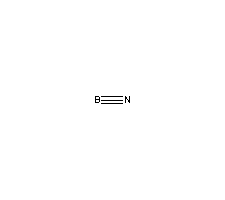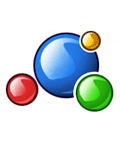Boron Nitride
-
- Category :
Inorganic chemicals
- CAS NO : 10043-11-5
- EC NO : 233-136-6
- Molecular Formula : BN
- Main Specifications : BN: 93% min.; BN: 98% min.; BN:99% min.
- Synonyms : Boronnitrideoffwhitepowder;Boron Nitride Rod;nitriloborane;
Package: in 10kgs/ bag
Uses : raw materials for lubricant, refractory, nuclear, LED production etc..
Molecular Structure:

Product description:
Boron Nitride:
Hexagonal BN is the most widely used polymorph. It is a good lubricant at both low and high temperatures (up to 900 °C, even in an oxidizing atmosphere). h-BN lubricant is particularly useful when the electrical conductivity or chemical reactivity of graphite (alternative lubricant) would be problematic. Another advantage of h-BN over graphite is that its lubricity does not require water or gas molecules trapped between the layers. Therefore, h-BN lubricants can be used even in vacuum, e.g. in space applications. The lubricating properties of fine-grained h-BN are used in cosmetics, paints, dental cements, and pencil leads.
Its use was revitalized in the late 1990s with the optimization h-BN production processes, and currently h-BN is used by nearly all leading producers of cosmetic products for foundations, make-up, eye shadows, blushers, kohl pencils, lipsticks and other skincare products.
Because of its excellent thermal and chemical stability, boron nitride ceramics are traditionally used as parts of high-temperature equipment. h-BN can be included in ceramics, alloys, resins, plastics, rubbers, and other materials, giving them self-lubricating properties. Such materials are suitable for construction of e.g. bearings and in steelmaking. Plastics filled with BN have less thermal expansion, higher thermal conductivity and electrical resistivity. Due to its excellent dielectric and thermal properties, BN is used in electronics e.g. as a substrate for semiconductors, microwave-transparent windows, structural material for seals.
Hexagonal BN is used in xerographic process and laser printers as a charge leakage barrier layer of the photo drum. In the automotive industry, h-BN mixed with a binder (boron oxide) is used for sealing oxygen sensors, which provide feedback for adjusting fuel flow. The binder utilizes the unique temperature stability and insulating properties of h-BN.
Parts can be made of h-BN by hot pressing. Union Carbide Corporation produces three grades of BN. HBN, with boron oxide binder, usable to 550-850 °C in oxidizing atmosphere and up to 1600 ° in vacuum, but due to the boron oxide content is sensitive to water. HBR uses calcium borate binder and is usable to 1600 °C. HBC grade uses no binder and can be used to 3000 °C.
